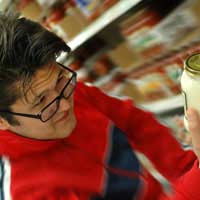British Food Origins

'Food origins' means the place and the situation that the food on your plate came from. As well as its origination – where your corn was grown or where your cod was caught or where the beef on your fork was raised, it also refers to the package of conditions surrounding its growth or cultivation. These might include:
- Was it grown organically (i.e. without the use of fertilizers and pesticides) or non-organically;
- Was it grown in natural conditions (i.e. I a field), or non-natural (in a greenhouse for instance, or a polytonal, or even as a genetically-modified crop);
- What was the intended market for the crop (i.e. for host country use or export);
- Is the crop grown within its normal growing season.
Tracing the Origins of your Food
If a consumer cares about the food they eat, and as a consequence of that, their own health; then it is important to know the origins of the food available, and that which you regularly buy.According to UK food laws, all food must now have a 'place of origin' sticker or sign either attached to it or the packaging, or be clearly visible nearby. This is in addition to information pertaining to:- The food's name (if it not obvious)
- It's ingredients
- The nutritional information (not a law, but should be written in support of any nutritional claims made by the manufacturer or supplier)
- Date tagging, which includes both a 'use by' date and a 'best before' datethe weight of the food
- Any necessary storage information, i.e 'in a cool dark place, away from light or damp'
The Customer Knows Best: Ethics and Consumer Power
All this information about the origin and conditions of an item of food is designed to serve the customer, and provide them with enough information to decide whether or not to buy the item.It may not be enough information, and the customer has the reasonable right to ask the shopkeeper or supplier further information, about say, where the food item was grown or how it was made, before making any purchasing decision. The ethics of the growing conditions may be an issue, for instance. If a customer has reason to believe people were exploited economically in the food's production, as it might be speculated about coffee growers in some regions of the world for instance; then the customer should investigate this further and ask the seller to satisfy them with evidence this was not the case.
Fair Trade for All
The 'Fair Trade' logo exists on a range of food sold in many food suppliers nowadays.This serves to reassure customers that the sale of the food, be it bananas, coffee, or chocolate cake, benefits not only the end of the line retailer (the supermarket, corner shop keeper), but the grower and harvester of the raw food material, 'the little guy', in other words.This ethical reassurance should serve to show the consumer that that the food they chose has safe and ethical origins. It was grown and produced in good conditions, and the consumer can buy with confidence.


Re: The British Film Industry
To whom it may concern I am 49 years old with the white hair , I was a investigative journalist in Afghanistan, and live in Belgium…
Re: Traditional British Beverages
Wonderful knowledge. This helped me so much for my A-levels absolutely marvelous! thank you.
Re: Great British Landmarks
@mae. Great to hear the site has been useful for you. Enjoy learning about Great Britain.
Re: Great British Landmarks
I am only in year 6 and we are learning about great Britain!
Re: Best British Brands
Unless they manufacture in the UK they have no right to call themselves a British Brand and I will do all I can to avoid purchasing any of…
Re: Famous British Actors
In the 1980's (I think) I attended a concert at the Westbury Music Fair on Long Island. He was a singer/actor with a British accent and he…
Re: Traditional British Beverages
@ceggy91. That's great thanks for letting us know.
Re: Traditional British Beverages
I LOVE this page. It helped me with my family heritage project.
Re: British Writing Awards
I'm from northeastern part of India,my english is so horrible.plz give me sm helpful tips to master english in best possible way..????
Re: How To Make Chelsea Buns
thank you for the help on making chelsea buns :D